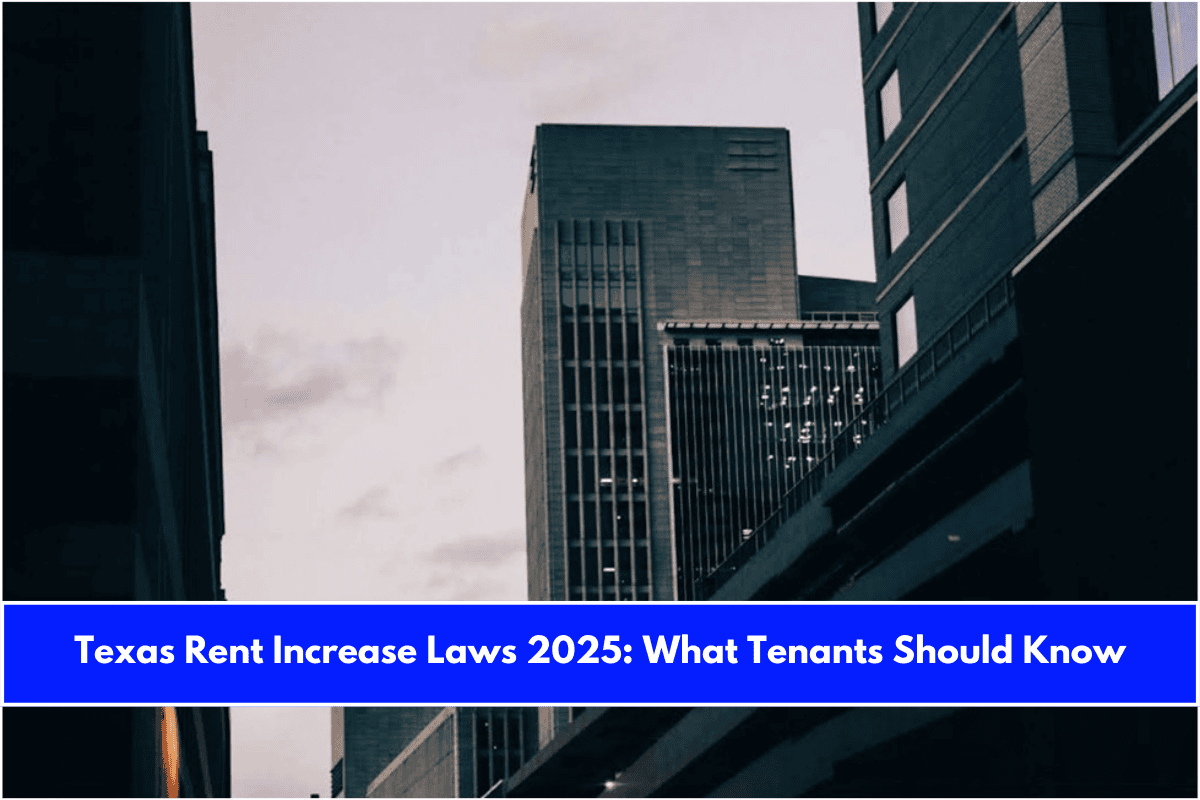As of 2025, Texas remains one of the most landlord-friendly states in the U.S. when it comes to rent increases. Here’s a comprehensive overview of what tenants should know about rent hikes, notice requirements, and their rights.
No Rent Control or Caps
Texas does not have any statewide rent control or rent stabilization laws. This means:
- Landlords can increase rent by any amount they choose once a lease term ends.
- There are no legal limits or caps on how much rent can be raised, whether for month-to-month or fixed-term leases.
Notice Requirements
- For month-to-month leases, landlords must provide at least 30 days’ written notice before a rent increase takes effect.
- For fixed-term leases (such as a one-year lease), rent cannot be increased during the lease term unless the lease specifically allows for it. Any increase can only take effect at the time of renewal, and the terms should be clearly stated in the lease agreement.
- Notice must be in writing and delivered according to the terms of the lease—either in person or by mail.
Exceptions and Special Cases
- Disaster-Related Rent Control: In rare circumstances, such as a declared disaster, local governments may enact temporary rent control ordinances, but this requires the governor’s approval. No such measures are currently in effect.
- Subsidized Housing: Properties that receive federal or local subsidies may be subject to separate rent increase restrictions.
When Rent Increases Are Illegal
A rent increase is illegal if it is:
- Discriminatory: Landlords cannot raise rent based on race, color, religion, sex, national origin, disability, or familial status, per Fair Housing laws.
- Retaliatory: Landlords cannot increase rent in retaliation for tenants asserting their legal rights, such as requesting repairs, reporting code violations, or joining a tenant organization. Retaliatory increases are presumed illegal if they occur within six months of such actions.
- In Violation of Lease Terms: Rent cannot be increased before the end of a fixed-term lease unless the lease allows it and the tenant agrees.
Typical Rent Increases
- While there is no legal cap, typical rent increases in Texas range from 5% to 10% annually, but can be higher in high-demand markets. In recent years, some cities have seen increases of 15% or more due to market pressures.
- Tenants may try to negotiate with landlords if faced with a substantial increase, but landlords are not obligated to agree.
Tenant Protections and Next Steps
- If you believe a rent increase is illegal, you can file a complaint with the Texas Department of Housing and Community Affairs or seek assistance from a tenant advocacy group.
- Always keep written records of your lease, communications, and any notices received.
- Review your lease for specific notice requirements and procedures.
Key Takeaways
| Rule/Requirement | Details |
|---|---|
| Rent Control/Caps | None statewide; landlords set any amount |
| Notice for Month-to-Month | 30 days’ written notice |
| Notice for Fixed-Term Leases | Only at renewal, as per lease terms |
| Illegal Rent Increases | Discriminatory, retaliatory, or before lease ends |
| Disaster Exception | Only with governor’s approval, rare |
In summary, Texas tenants should be aware that rent can be raised significantly with proper notice, and there are few legal protections against high increases unless discrimination or retaliation is involved.
Staying informed, reading your lease carefully, and keeping documentation are your best defenses in navigating Texas’s rental landscape in 2025.
Sources:
- https://www.doorloop.com/laws/texas-rent-control-laws
- https://victorsteffen.com/guides/austin-texas-rent-control-laws/
- https://www.hemlane.com/resources/texas-rent-control-laws/
- https://www.sll.texas.gov/faqs/rent-increase/
- https://www.rentspree.com/blog/texas-rent-increase-laws











Leave a Reply